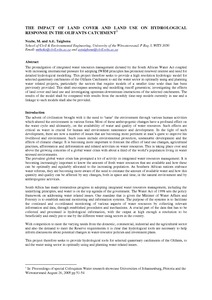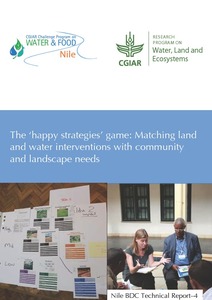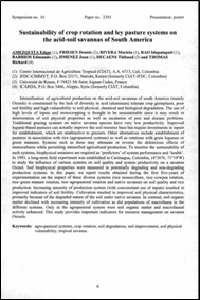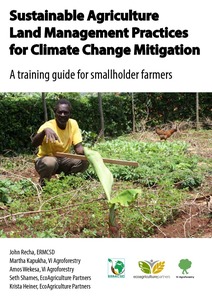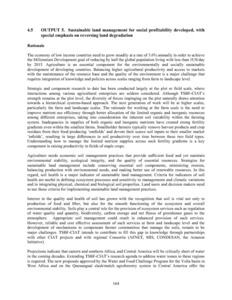Ordenación de tierras
AGROVOC URI:
The impact of government policies on land use in northern Vietnam: an institutional approach for understanding farmer decisions
This report identifies the driving forces for reforestation in three villages of Northern Vietnam. Using an institutional analysis focused on the rules governing upland access and use, the authors assess the relative impact of state policies (reforestation programs and forestland allocation) on land use change. Findings show that the latter are indirectly responsible for reforestation, but not because of the incentives they provided. Instead, they disrupted the local rules governing annual crop cultivation and grazing activities leading to the end of annual cropping.
La genèse des politiques publiques foncières comme mode d’action de l’État ougandais sous le leadership de Y. Museveni
The Evolving Farming and Pastoral Landscapes in Ethiopia: A Farming System Framework for Investment Planning and Priority Setting
The ‘happy strategies’ game: Matching land and water interventions with community and landscape needs
The Chinyanja triangle in the Zambezi River Basin, southern Africa: status of, and prospects for, agriculture, natural resources management and rural development
The changing face of irrigation in Kenya: opportunities for anticipating changes in Eastern and Southern Africa
The Chinyanja triangle in the Zambezi River Basin, southern Africa: status of, and prospects for, agriculture, natural resources management and rural development
The Chinyanja Triangle (CT) is an area inside the Zambezi
River Basin, inhabited by Chinyanja-speaking people
sharing a similar history, language and culture across
the dryland systems of the eastern province of Zambia,
southern and central regions of Malawi and Tete Province
of Mozambique. Chiefs and Chiefdoms play a critical role
in decision making and influencing social relationships. The
Zambezi River, which originates in the Kalene Hills in Zambia
is joined by ten big tributaries from six countries, and is
Sustainable Agriculture Land Management Practices for Climate Change Mitigation: A training guide for smallholder farmers
The manual was created specifically for use in the Western Kenya Smallholder Agricultural Carbon project, managed by the Swedish NGO Vi Agroforestry, which is the test case for the first Voluntary Carbon Standard (VCS) methodology for generating carbon credits by building organic matter in agricultural soils. The project aims to provide support to farmers as they implement the sustainable agricultural and management (SALM) practices which generate the carbon credits within the project.

